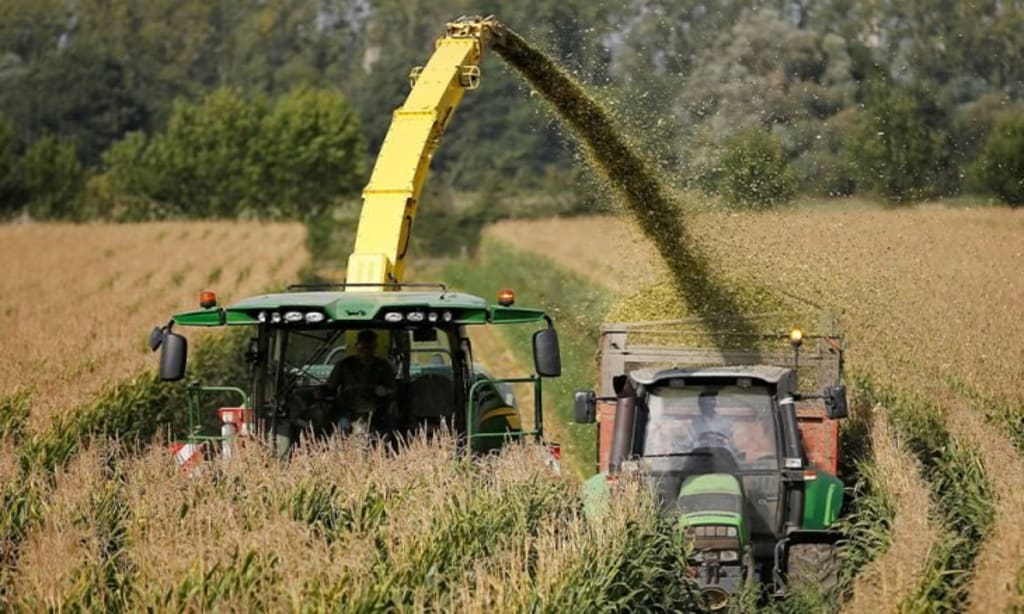Russia's war on Ukraine and food security in the Arab countries
The war raging today on the Ukrainian lands has many direct and dangerous repercussions for us in the Arab countries.

The war raging today on the Ukrainian lands has many direct and dangerous repercussions for us in the Arab countries. Away from the popular talk about the collapse of the world order as it crystallized in the aftermath of the disintegration of the former Soviet Union and the rise of the unilateral hegemony of the United States of America in the 1990s, which had to give way to the plurality and diversity of the centers of domination from Beijing and Moscow to Brussels and Washington, and also away from the many prospects put forward On the Arab side, about the repercussions of the confrontation between the West and Russia on our countries, on the areas of conflict and armed conflicts, and on our major issues from Palestine to the future of Syria, Libya and Yemen, and the relationship with Iran; Apart from all that, the direct effects of the Russian war on Ukraine are related to the issue of food security for the Arab peoples.
Russia and Ukraine together produce nearly 30 percent of the world's wheat crop, and together they also produce 19 percent of corn and high proportions of other agricultural crops and food derivatives such as sunflower oil, which contribute to global production of 80 percent. Given the size of its land compared to the size of the Russian territory, Ukraine's production rates of wheat and corn are of high quality, amounting to the export of 13 percent of corn and 12 percent of the wheat traded globally. During the past days, the Russian war imposed on Ukraine a state of general concern about the supply of agricultural crops, and this led to a stark rise in the current prices and the prices of future contracts, especially for wheat, which did not need more price shocks after the pandemic caused its price to rise by 80 percent during the past two years. . The war also forced the quick exit of many Western agricultural crop companies operating in Ukraine to supply and export wheat and corn to the world (through the gateway to the Odessa port). High productivity. In fact, the Russian military operations, which are mainly concentrated in eastern Ukraine, are hitting the most fertile agricultural lands and the most abundant crops for wheat and corn, in a way that it is possible to expect a decline in the Ukrainian production rates.
For us in the Arab countries, this means additional challenges to food security for a region that is among the largest importers of wheat, corn and other agricultural crops from Russia and Ukraine. Our country suffers, under conditions ranging from water scarcity and high temperatures to frequent outbreaks of armed conflicts and conflicts, from almost complete dependence on the outside and on importing agricultural crops to meet the requirements of its citizens and ensure their food security. In 2021, Arab countries in North Africa and the Middle East imported 36 million (metric) tons of wheat, the largest proportion of which came from Russia and Ukraine. While countries such as Egypt, Saudi Arabia and Algeria continued to import wheat in 2021 at the same rates as previous years, water scarcity and mismanagement of limited water resources in Syria, Iraq and Morocco caused their wheat imports to increase above pre- 2021 rates.
The dangers of interruption or disruption of global wheat supplies due to the Russian war on Ukraine represent a direct challenge to Arab food security and prompt Arab governments to search for new exporters of wheat, corn, and others, whether in Europe, Latin America or North America. On the other hand, the rise in wheat prices, especially Arab governments, puts in another challenge, which is the continued control of the price of wheat consumed locally, which official support policies have been controlling and which high wheat prices, as well as high fuel prices and rising inflation rates, both Arab and global, face new difficulties and pressures. In the short term, there is no alternative for Arab governments other than diversifying the sources of importing wheat (and corn as well) and looking for contracts to import from the countries of Romania, Canada, Argentina, Germany and France. In countries such as Lebanon, which does not possess a strategic stock of wheat for only a few months, and Yemen, which does not possess a significant strategic stock, diversifying the sources of wheat import becomes an urgent and first food security priority. In the short term as well, Arab governments should prepare to bear the consequences of the global rise in agricultural and fuel prices, and search for ways to rationalize support policies without waiting for more price shocks. As for the medium and long term, the Arab countries have no solution but to reduce the dependence of their food security on the global market and search for ways to make good use of water resources and arable lands to expand the areas planted with wheat and corn in order to raise local production rates. Arab countries can mutually benefit from their experiences in these areas; The Egyptian government has a good and balanced experience in rationalizing wheat subsidy policies (loaf of bread) and has an ambitious plan to expand wheat cultivation from two hundred and fifty thousand hectares to two million hectares by 2024. The Moroccan government has a good experience with regard to the production of renewable energy (especially in the fields of solar energy) and the UAE has a promising experience In the field of rationalizing the use of limited water resources.
Not all worldly matters and the conditions of our country are related to the fluctuations of the global system, the upcoming multipolarity and military confrontations. Rather, many of them are related to the conditions of female citizens and the repercussions of what is happening globally with the requirements and requirements of their lives.





Comments
There are no comments for this story
Be the first to respond and start the conversation.